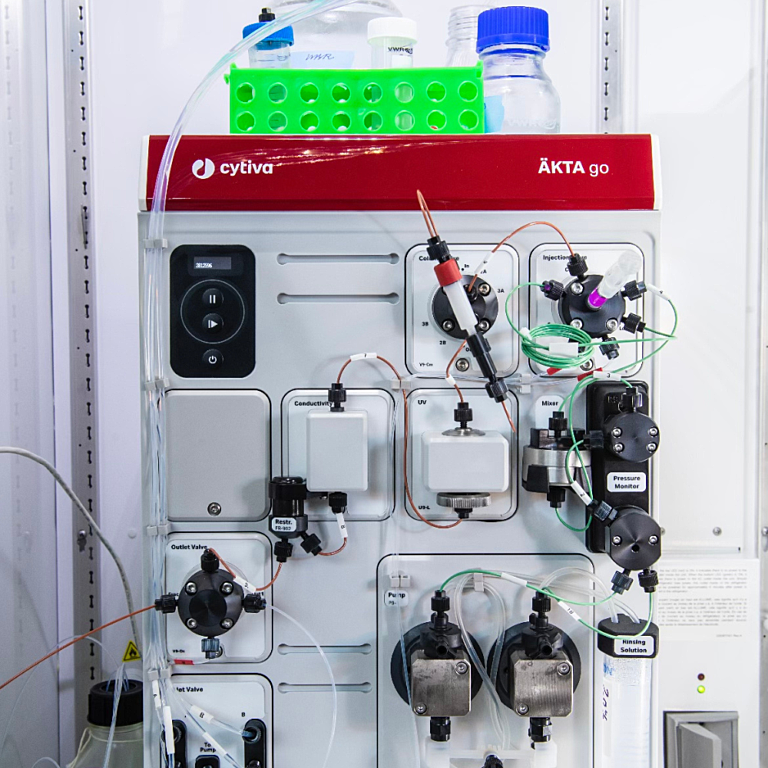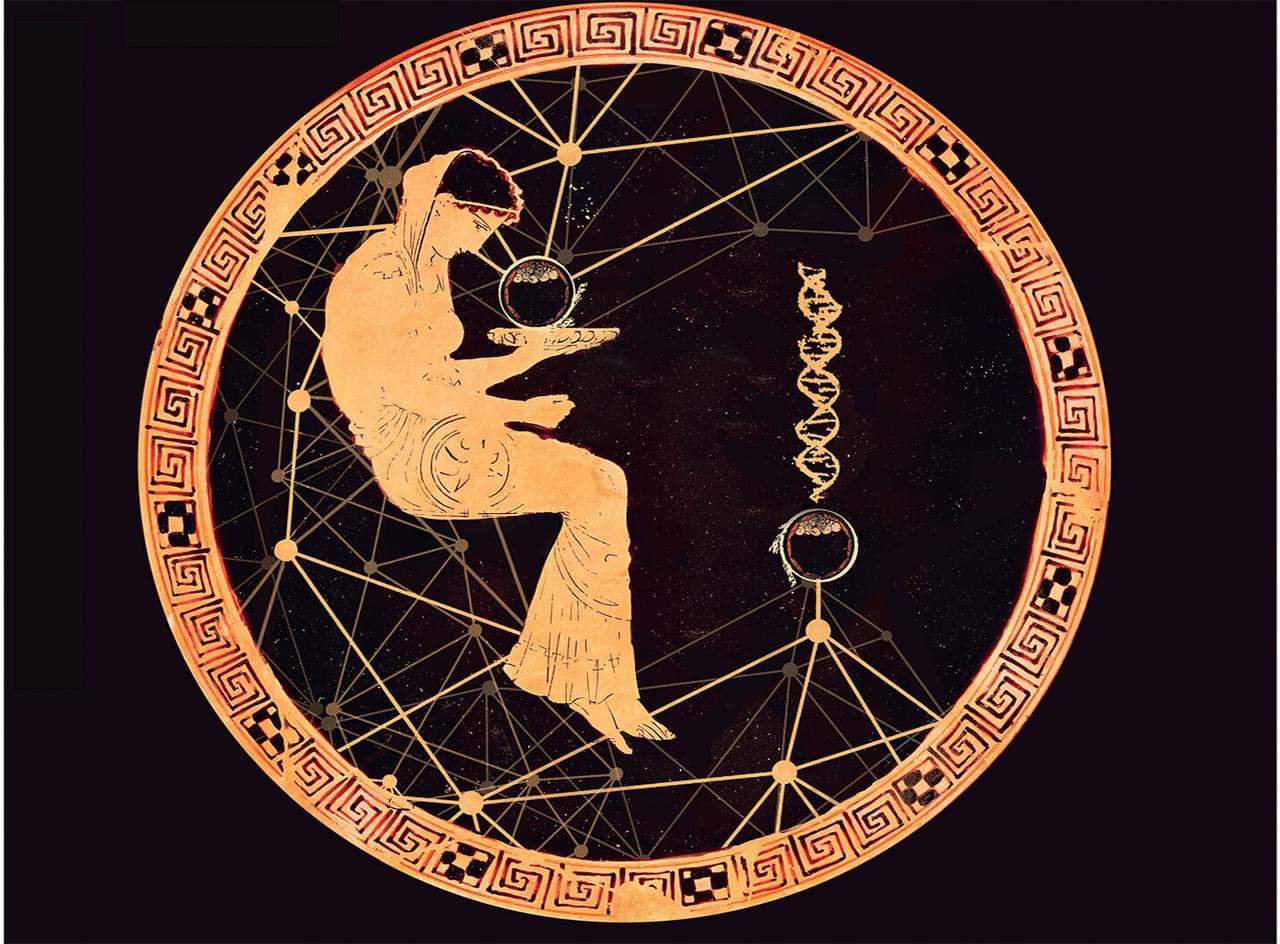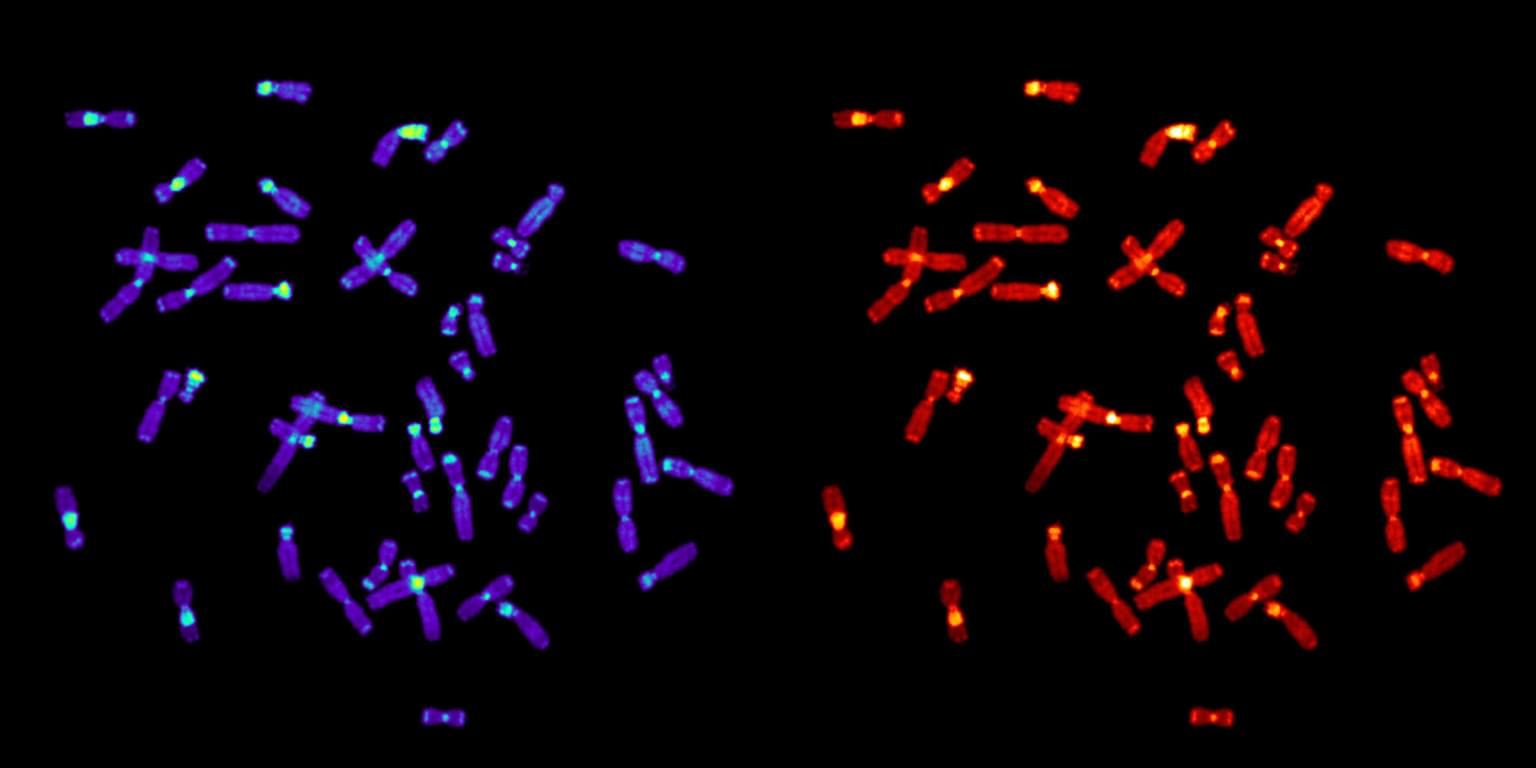News
11 April 2025
Road to Research: Q&A with Alex Garruss, Ph.D., Jim and Virginia Stowers Fellow
“There are few rewards as powerful and as elevating as making a clear, robust scientific observation that advances the field.”
Read Article
News
Bret Redwine is a scientist with the Stowers Institute’s Custom Protein Resources Center.

Sample being applied to ÄKTA Go instrument.
What do you think people would find most interesting about your job and the technology you use?
The Custom Protein Resources (CPR) team helps scientists at the Stowers Institute for Medical Research accelerate their research by helping them understand how proteins function and how we can isolate and characterize them. We help scientists understand the structure and function of these tiny machines within cells. We also help engineer protein variants to suit research needs.
What exactly is Custom Protein Resources?
The CPR team are biochemists and structural biologists, which means we like to understand how proteins function - how the thousands of proteins in a cell work independently and together. Specifically, we make it possible for scientists to isolate specific proteins from the complex mixture within a cell and investigate how they function. Some proteins, when modified, serve as powerful tools for scientific inquiry, and we help scientists develop tailored tools for their research.
What does the new system for protein purification do?
Our two AKTA Starts and the AKTA Go are known as chromatography systems, which separate components of a mixture based on some kind of attribute like size or charge. Specifically, these instruments are Fast Protein Liquid Chromatography (FPLC) instruments. They automate and simplify the precise steps needed to isolate specific proteins from the remaining cellular content. This not only makes our jobs much easier, but also makes the purification process more reproducible. We can repeat experiments and expect similar results, which is a huge relief in the uncertain world of research.
What is the benefit of having this technology at the Stowers Institute?
These instruments give Stowers scientists access to the tools they need to become better biochemists. They are user-friendly, and we provide "bootcamp" style courses each year to give in-depth training in the theory and practical side of isolating proteins. Along with courses, we also provide one-on-one consultation and training. By offering comprehensive technology access and training, we hope to provide all scientists that want to isolate and characterize proteins with tools and expertise to move their research forward.
What are some of the most exciting applications of this technology?
FPLC instruments are a gateway to many other technologies, many of which can be found within CPR. Solving the structure of a protein, a challenging and beautiful endeavor to determine its typical 3D shape, requires isolating the protein to nearly 100% purity. Similarly, to determine the function of a protein via biochemical or biophysical methods- like the activity of an enzyme - the same procedures apply.

ÄKTA Go instrument.
News
11 April 2025
“There are few rewards as powerful and as elevating as making a clear, robust scientific observation that advances the field.”
Read Article
News

09 April 2025
New study shows how we can better learn our genome’s hidden grammar, potentially paving the way for personalized medicine.
Read Article
News

09 April 2025
The multi-institutional study assembling six ape genomes provides a new appreciation for how chromosomes evolve.
Read Article
